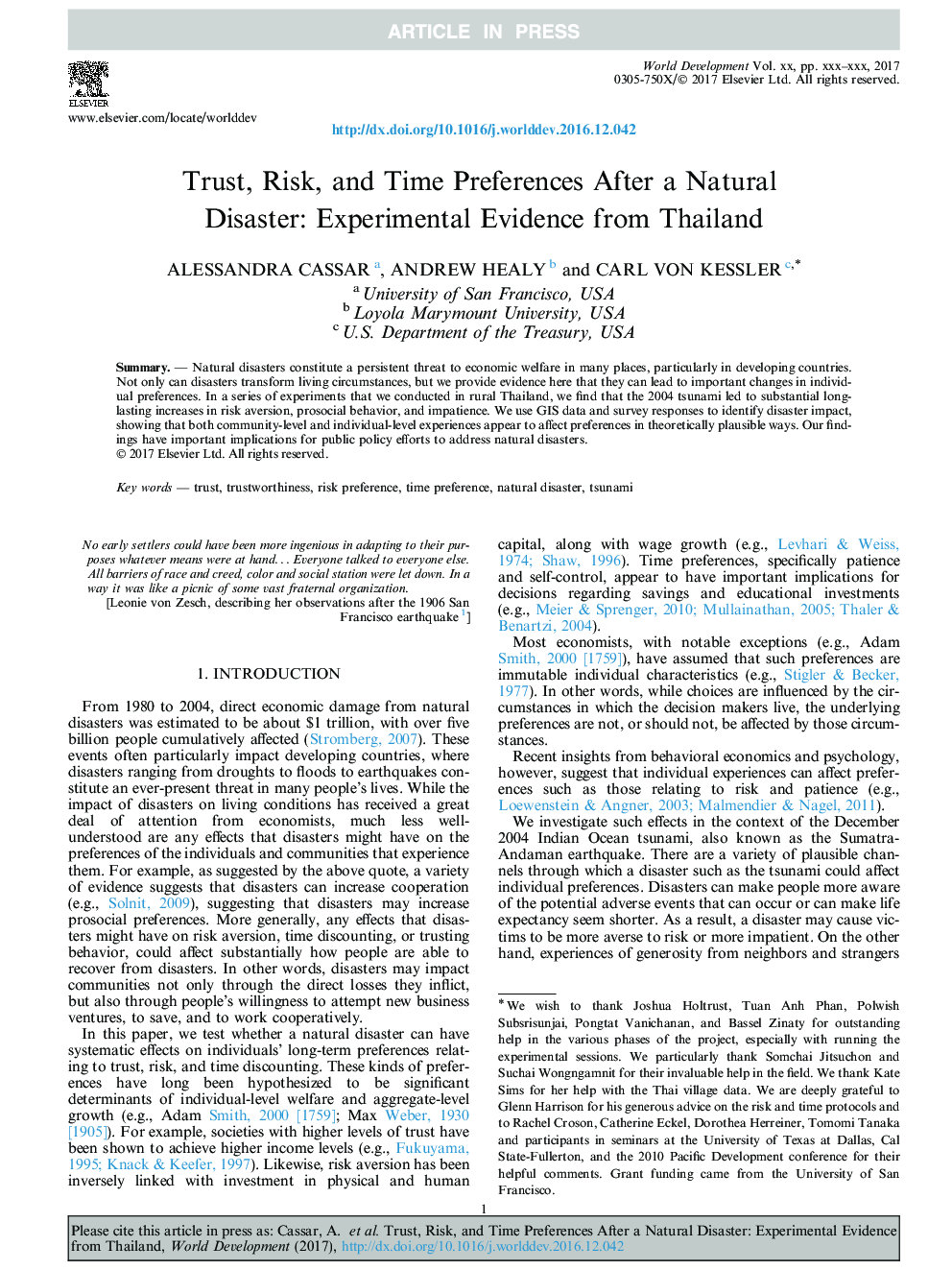| Article ID | Journal | Published Year | Pages | File Type |
|---|---|---|---|---|
| 5105205 | World Development | 2017 | 16 Pages |
Abstract
Natural disasters constitute a persistent threat to economic welfare in many places, particularly in developing countries. Not only can disasters transform living circumstances, but we provide evidence here that they can lead to important changes in individual preferences. In a series of experiments that we conducted in rural Thailand, we find that the 2004 tsunami led to substantial long-lasting increases in risk aversion, prosocial behavior, and impatience. We use GIS data and survey responses to identify disaster impact, showing that both community-level and individual-level experiences appear to affect preferences in theoretically plausible ways. Our findings have important implications for public policy efforts to address natural disasters.
Related Topics
Social Sciences and Humanities
Economics, Econometrics and Finance
Economics and Econometrics
Authors
Alessandra Cassar, Andrew Healy, Carl von Kessler,
